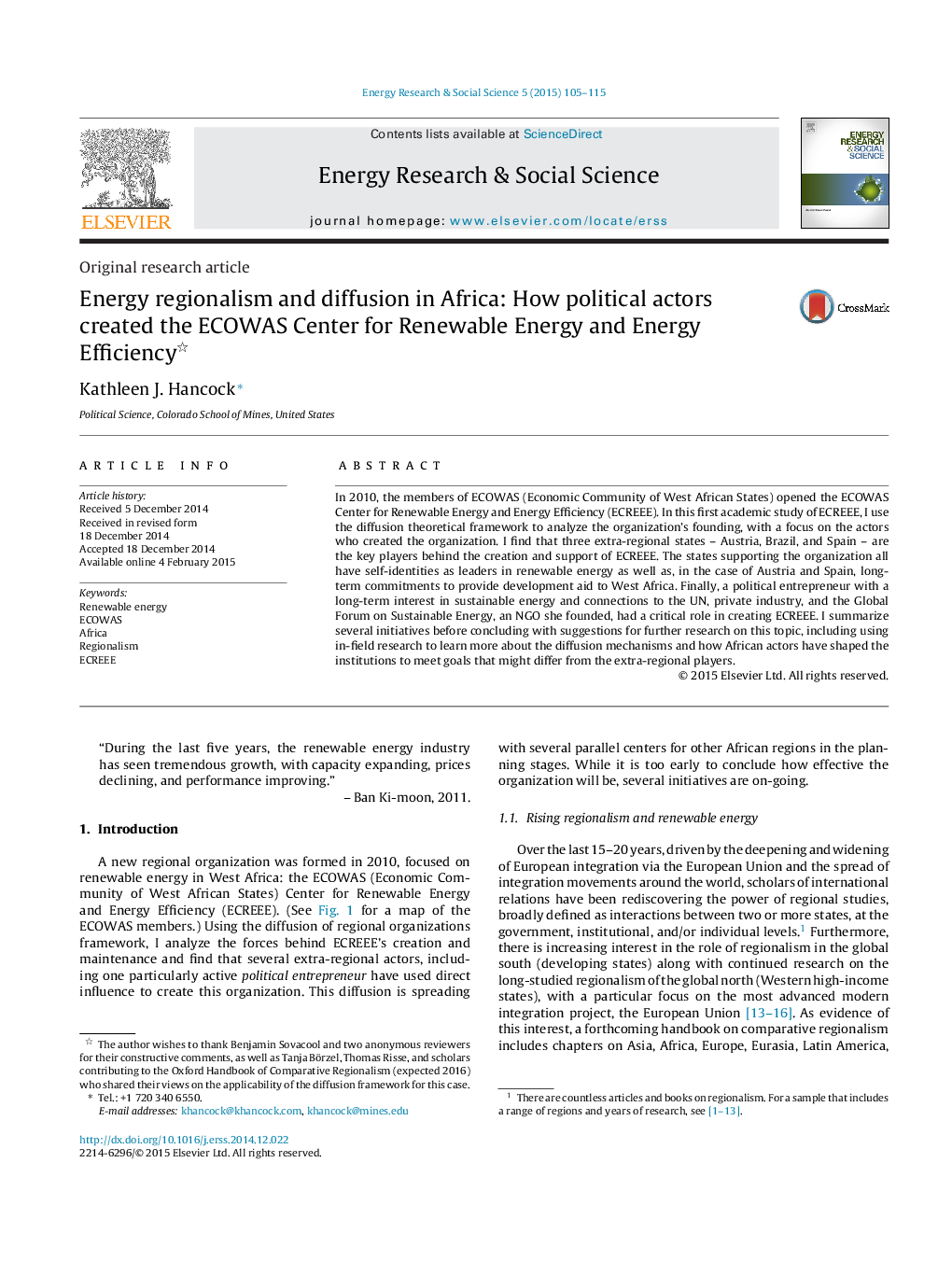| Article ID | Journal | Published Year | Pages | File Type |
|---|---|---|---|---|
| 6558969 | Energy Research & Social Science | 2015 | 11 Pages |
Abstract
In 2010, the members of ECOWAS (Economic Community of West African States) opened the ECOWAS Center for Renewable Energy and Energy Efficiency (ECREEE). In this first academic study of ECREEE, I use the diffusion theoretical framework to analyze the organization's founding, with a focus on the actors who created the organization. I find that three extra-regional states - Austria, Brazil, and Spain - are the key players behind the creation and support of ECREEE. The states supporting the organization all have self-identities as leaders in renewable energy as well as, in the case of Austria and Spain, long-term commitments to provide development aid to West Africa. Finally, a political entrepreneur with a long-term interest in sustainable energy and connections to the UN, private industry, and the Global Forum on Sustainable Energy, an NGO she founded, had a critical role in creating ECREEE. I summarize several initiatives before concluding with suggestions for further research on this topic, including using in-field research to learn more about the diffusion mechanisms and how African actors have shaped the institutions to meet goals that might differ from the extra-regional players.
Related Topics
Physical Sciences and Engineering
Energy
Energy (General)
Authors
Kathleen J. Hancock,
